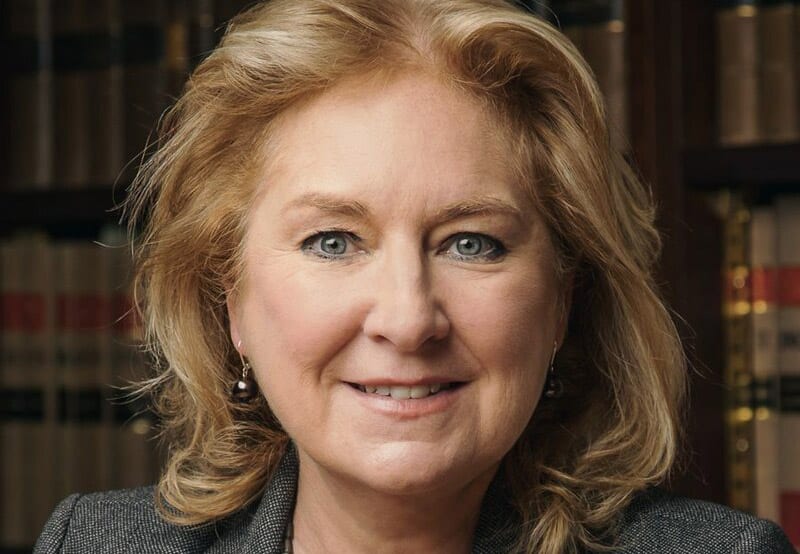The appointment of Sue Carr last week as the first Lady Chief Justice of England and Wales is another first for the Conservative party. Chief Justice Carr was appointed by King Charles on the advice of Prime Minister Rishi Sunak acting on the recommendation of an independent judicial selection panel.
The office of Chief Justice was a male preserve for centuries, so the appointment of a woman to the highest judicial office is hugely symbolic. In Britain and Europe women were deemed fit to be monarchs but denied entry into the legal, medical and other professions until late in the 19th century.
They were admitted in the early years of the 20th century but equality was elusive until much later; even in the 1980s when Margaret Thatcher was already the first woman prime minister, there were only three women judges in the high court and none in the court of appeal.
Retired judge, Baroness Elizabeth Butler-Sloss, was the first woman to be appointed to the court of appeal but that did not happen until 1988. Even then she was known as a “Lord Justice of Appeal” until 1994 when she finally became “Lady Justice of Appeal” on the direction of the head of the appeal court, the avant-garde Sir Thomas Bingham, later Lord Bingham on becoming Chief Justice and then senior law lord.
The first woman to be appointed to the highest court in UK – now the supreme court – was Baroness Brenda Hale who was appointed in 2004. She became its president in 2017 and retired in 2022. In 2019 she famously declared Boris Johnson’s childish attempt to close parliament, null, void and of no effect which she did in style by sporting a spider brooch.
Changes in the law usually reflect changes in social culture. However, sometimes laws are passed in order to effect a change in attitudes the zeitgeist no longer regards acceptable. Equality laws were passed as early as the 1970s, but changes in culture did not develop sufficiently until the millennial generation matured into adulthood in the 21st Century.
In Europe and America in these more advanced times there has been a sea change in culture, and equality has now taken root so deep it has even provoked the reactionaries in the anti-woke brigade. Apart from their rantings there is a more subtle hindrance to full blown equality: the phenomenon of the invisible glass ceiling. It is an appropriate metaphor for the fact that women and minorities are blocked from reaching the top of their professions by a subconscious bias against them by virtue of their gender, ethnicity, sexual orientation etc that is more pernicious precisely because it is unintended.
The symbolism of a woman Chief Justice is its power to penetrate the invisible glass and shift the nation’s collective subconscious off biased thinking. The UK has many top judges, but the Chief Justice has pride of place ceremonially and because she sits in open court, meting out justice on a daily basis. She is at the apex of a hierarchy above the head of the civil division of the court of appeal and the heads of the business & property and family divisions of the High Court, all of whom are top of the range in ability and leaders in their own right.
The Chief Justice is not only first amongst equals, she has been chosen because of her unique leadership qualities to be leader of leaders. The Chief Justice manages the administration of justice in England and Wales and presides over appeals in the court of appeal, mostly in the criminal division, but also in important cases in the civil division and the supreme court .
Scotland has her own system of justice headed by the Lord President of the Court of Session and Northern Ireland has her own Lady Chief Justice. She is Siobhan Keegan and was appointed in Northern Ireland in September 2021. The UK now has two Lady Chief Justices at the same time and if that does not penetrate the invisible glass ceiling, nothing will.
Outside the law there have been a number of women political leaders round the world other than Margaret Thatcher. They include Indira Ghandi in India, Benazir Bhutto in Pakistan – both of whom were murdered in their prime – Golda Meir in Israel, and Angela Merkel in Germany among others. Apart from Angela Merkel, however, they were exceptions to the rule rather than the rule. They were female prime ministers in a man’s world, whereas the new equality is about equality in a more diverse world. Angela Merkel was the model 21st century leader who was female proper rather than a token woman.
In his speech to the Conservative party conference last week Sunak made light of his own elevation above the glass ceiling. He said that he was proud to be the first British Asian to become UK prime minister, but that he was even prouder that it was no big deal. It was a backhanded compliment to his party, but like many compliments it was only true up to a point.
The unopposed election of a British Asian of Indian heritage by his own party to be their leader and prime minister might not be as big deal as it would have been if he were returned to power by the people a la Barack Obama in the US who was elected president twice.
What Rishi Sunak can be proudest of all, however, was the appointment of a woman to be Chief Justice of England and Wales that, unlike his own appointment, was indeed a big deal.
Alper Ali Riza is a king’s counsel in the UK and a retired part time judge







Click here to change your cookie preferences